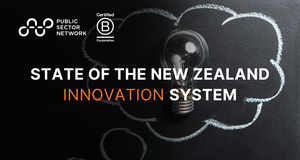Application Programming Interfaces, commonly referred to as APIs, are the cornerstone of modern applications, enabling core features of complex software to be extended and integrated in many different ways. The adoption of Big Data, coupled with Federal Open Government Data initiatives around the world have driven increased use of APIs.
APIs are rapidly innovating and transforming the way that organisations can deliver services and improve customer experiences. By adopting an API first digital government approach, in the public sector, these benefits manifest themselves in three key ways:
- Citizen experience: By integrating APIs and going digital departments deliver more accessible and seamless citizen experiences.
- Innovation & Efficiency: APIs enable governments and the wider industry to spur innovative business models and operate cost-effectively.
- Data & Security: With security integrated as a core component of infrastructure, APIs ensure the secure exchange of data.
Ultimately however APIs are about transparency, sharing and openness, which is how most governments (we won’t discuss semantics now) strive to operate. APIs save time by updating information automatically and they make information more reliable as it’s all managed from a single source. What this then results in is an openness that makes it possible to share open data through many sources in a consistent way to benefit the lives of citizens.
But all this you probably already knew – indeed it’s probably why you’re reading this article in the first place. Perhaps what is more interesting though is what governments are actually doing with the information they’re collecting and sharing.
Below we take a look at three case studies – from NSW Health, from the Queensland Government Department of Environment and Science and from Marlborough Council in New Zealand to better understand how APIs are facilitating data sharing and enhancing citizen experiences.
Case Study Snap Shot
NSW Health Pathology
Over the last four years NSW Health Pathology, which supports the health and wellbeing of New South Wales’ eight million strong population through improved management and treatment of diseases and illnesses, has been developing a library of API-led microservices to facilitate seamless integration between a broad range of healthcare systems.
These API-led microservices became crucial earlier this year – they now play a pivotal role in the fight against Covid-19.
By taking reusable microservices and integrating these with NSW Health Pathology’s four laboratory information systems as well as federal systems like eMRs (electronic medical records) and the federal government’s My Health Record, the department was able to stand up a text bot to deliver Covid-19 test results several days faster than in other parts of the world.
According to IT News the automated citizen-facing service, which was developed in the first weeks of the pandemic resulted in a drastic reduction in hours – or the equivalent of returning 5000 days of effort back to clinical frontline staff. The automated system is also able to deliver negative test results via SMS in as little as 24 hours.
Queensland Department of Environment and Science
The Department of Environment and Science’s Science Division maintains scientific information systems that manage foundational datasets for the Queensland Government – these datasets deliver scientific expertise to protect and manage the environment and natural resources. Additionally they work to drive innovation by supporting the development of Queensland’s science sector.
Most of these datasets are freely available and used by the government, industry, researchers and the public, but they’re not always easy to access or consume.
Looking to improve access and enable users to better consume Science Division data, and as part of the Accelerating Science Delivery Innovation (ASDI) program, Science Division are exploring ways to develop and deliver better and more application programming interfaces (APIs).
The Department prototyped an API delivery platform and successfully proved that they could transform a legacy web service into a fully managed, open and interoperable API with very little development time and effort.
OpenAPI Specification and an API management approach will help the Science Division open more of their data sets for greater, real-time consumption. It will remove much of the repetitive development
tasks associated with API creation, which will result in faster deployment, and faster adoption and consumption within the community.
To learn more about this read the full case study published by the Queensland Government.
Marlborough Council, NZ
The Marlborough region of New Zealand’s South Island is known globally for the fine wines it produces, and more locally for farming and dairy production. With a heavy reliance on agriculture Management of the region’s water becomes a complex balancing act.
Marlborough District Council partnered with Media Suite to help improve the systems for utilising and protecting its most valuable natural resource. To achieve this they developed eWater, which is designed to provide clarity around how much of the region’s water is being used, identifying unused water that could be utilised by others or for other purposes.
eWater consumes an API providing up to date monitoring for water meters, river flow rates, and aquifer levels. Based on this data and permit information it calculates current and historical data on available water allocation and use. By harnessing APIs all data recorded by eWater is standardised, digital and easily accessed for analysis meaning the region’s water can be more efficiently monitored in near real-time.
With the API-based system prototyped in Marlborough first, and co-funded by the Ministry for the Environment, eWater will be made available to other regional councils across the country to ensure effective natural resource management.
For more content, news and insights be sure to join the free Innovation and ICT Community – a hub where you can connect with like-minded professionals, source thought provoking content, and engage in conversation with peers.





















